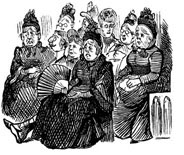
The “Super Catholic” Syndrome
The media spotlight has moved back onto the scandal-wracked Legion of Christ, and the themes of secrecy, servile obedience, financial irregularities, and spiritual abuse are again casting long shadows. For those who were hoping that the humbling of the order (a result of the fall of Legion founder Fr. Marcial Maciel) was having a cleansing effect, two recent events will likely bring them crashing back to earth.
First, six editors of the online Catholic news agency Zenit resigned after Legion brass ousted Jesús Colina, Zenit’s founding editor and director. Colina started Zenit in 1997 during the nascent stages of the worldwide web, and saw it grow into an international news source available in seven languages with some 450,000 daily e-mail subscribers. He said he was forced out because he resisted pressures to identify Zenit more closely with the Legion, which has been funding the agency’s operations since its inception. He also cited a lack of mutual trust and transparency in the agency’s relationship with the order. The six foreign-language editors who followed Colina out the door apparently did so in solidarity with him. “The initial vision of Zenit was never to make it a service of a particular congregation, but rather of the universal Church,” they said in a statement. “This has been the spirit with which we have worked throughout the years, and the spirit we could not betray.” Despite the years of collaboration, the editors disagreed with the order’s decision to “underline the institutional dependence of the agency on the Legion.” For the past fourteen years, they said, the agency has worked independently of the religious order. The Legionaries acted as spiritual advisers “to ensure fidelity to the magisterium,” and to this day control the board that oversees the agency.
A spokesman for the Legion, Fr. Andreas Schoggl, countered with a confusing statement of his own. Fr. Schoggl said the order has “always been involved with Zenit” in making strategic decisions, yet at the same time he claimed that Zenit’s journalists operate with “editorial independence.” Fr. Schoggl said the decision to ask for Colina’s resignation was not part of a policy change or a change in Zenit’s editorial direction, but was necessary in order to offer a more transparent explanation about the involvement of the Legion with Zenit: “We see a need to do so, because the stress on journalistic independence (which is still the case) might have induced people to think that Zenit was just a private initiative of Catholic journalists.”
For an order that’s come under fire for duplicity and heavy-handedness to make a contradictory, ambiguous non-statement, and to claim that the ousting of Zenit’s founder — and six more editors to boot — is not part of a policy change, is to invite suspicion. What could be worth risking Zenit’s reputation and fourteen years of growth? Something doesn’t add up. In the current climate of profound mistrust of Catholic leaders, laden with a “fool me twice, shame on me” attitude on the part of wary Catholics increasingly prone to risking everything and ditching the Church altogether, the stakes are too high for repeat upon repeat scandals.
You May Also Enjoy
When any group gathers itself around a founder or personality other than Christ, there is bound to be trouble.
As time goes on, it's becoming clearer that these three concepts best describe the modus operandi — and the goals — of the Legion of Christ.
The Legion of Christ claims the Vatican has dropped its investigation of its founder - but is it true?

